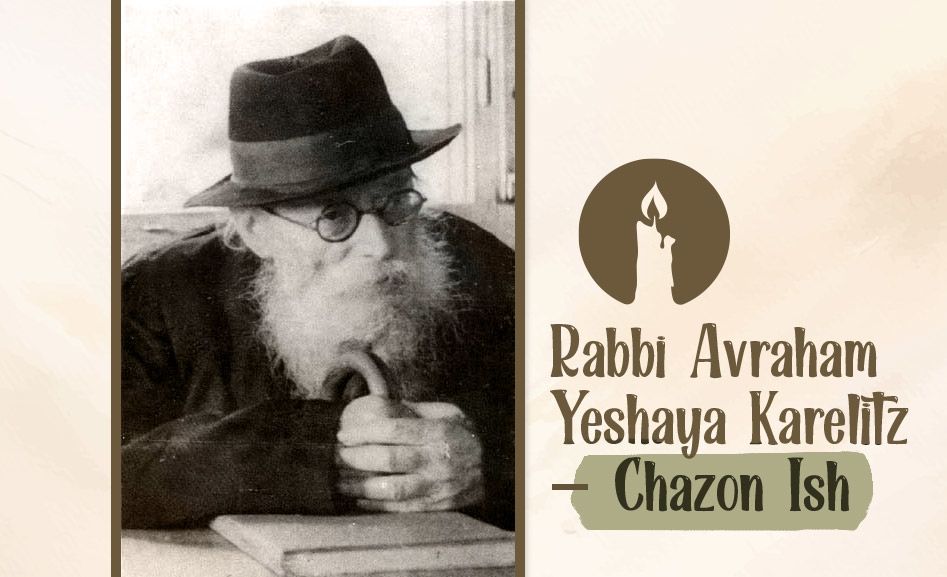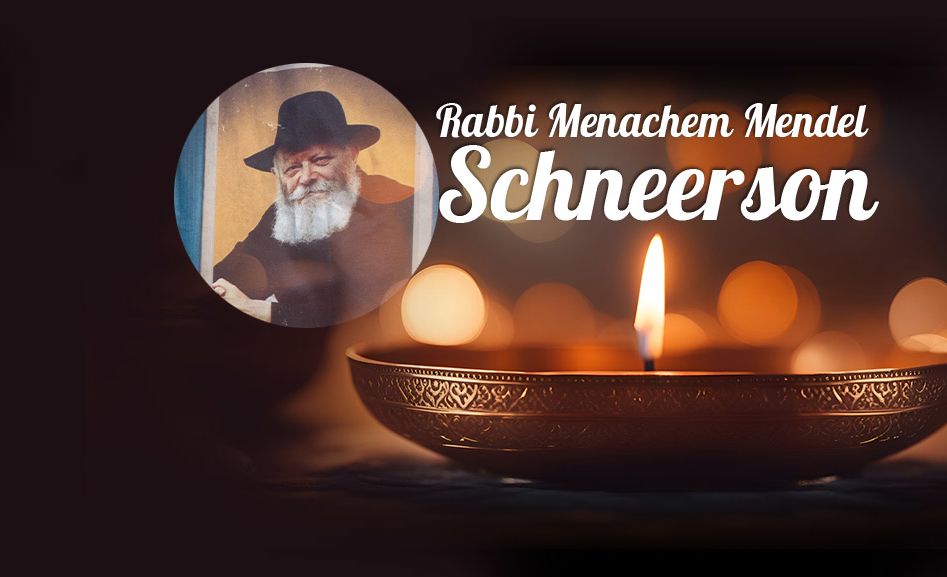
Rabbi Shlomo Wolbe
Date of Passing: 17-Nissan. Born in Berlin shortly before World War One, Rav Wolbe's early education was in Berlin, in the Yeshiva of Frankfurt, and then in...

Rabbi Shlomo Wolbe
Born in Berlin shortly before the outbreak of the World War One, Rav Wolbe's early education was in Berlin, in the Yeshiva of Frankfurt, and then in Rav Botchko's yeshiva in Montreux, Switzerland. In the 1930s, he decided to learn in Eastern Europe, spending several years in Mir, Poland, where he became a close talmid of the Mashgiach, Rav Yerucham Levovitz, and, after Rav Yerucham's passing, of Rav Chatzkal Levenstein. Throughout Rav Wolbe's life, he viewed himself as a talmid muvhak, of Rav Yerucham, and as a transmitter of the mussar tradition that traces back to Rav Yisroel Salanter.
THE WAR YEARS
When the Soviet armies overran the town of Mir in the opening weeks of World War Two, the Yeshiva fled to Lithuania. Rav Wolbe, who was a German national, was forced to separate from the Yeshiva and spent the war years in neutral Sweden. While in Sweden, Rav Wolbe taught Torah to the local Jewish population, in essence creating what was possibly the first kiruv rechokim program in the modern world. He and Rav Wolf Jacobson, the local rov, became the Swedish contacts for the Vaad Hatzalah and also created a seminary for young women who had survived the inferno of Europe. During this period of his life, Rav Wolbe authored hashkafah seforim in both Swedish and German for outreach purposes.
After the war, Rav Wolbe moved to Petach Tikvah, Eretz Yisrael, where he married his rebbetzin, the daughter of Rav Avraham Grodzinsky, hy"d, the last mashgiach of Slobodka. Through his rebbetzin, Rav Wolbe was a nephew of Rav Yaakov Kamin-etzky zt"l, and a brother-in-law of Rav Chaim Kreisworth zt"l.
AS A MASHGIACH
In 57081948, Rav Wolbe joined Rav Moshe Shmuel Shapiro and opened the Yeshivah Gedolah of Be'er Yaakov. Rav Shapiro became the Rosh Yeshiva and Rav Wolbe was mashgiach, a position he held for over 35 years. Later, he served as mashgiach in the Lakewood Yeshiva in Eretz Yisroel and he opened Yeshivas Givat Shaul. Rav Wolbe gave mussar shmuessin, vaadin (more informal lectures, usually to smaller groups), and shiurim in many yeshivos and other public and private forums. He also created batei mussar where he delivered shmuessin and vaadin to long-standing talmidim, seasoned talmidei chachomim who developed into great gedolim and mussar experts themselves.
Rav Wolbe published the substance of many of his lectures in several seforim on a wide variety of topics. In each volume, he wrote an introduction explaining the purpose for that particular sefer and the place and context where he delivered the original lectures, shmuess-in, or vaadin. His name does not appear in any of his seforim.
DERECH HALIMUD- LEARNING STYLE
Rav Wolbe himself points out a key component to much of his teaching: "One must learn how to approach a statement of Chazal – to study the depths of its pshat and to experience it until the hidden light of Chazal's statement illuminates you" (Alei Shur, Pg. 9).
What did he mean? This sounds a bit confusing .
Often, the simple meaning of Chazal's statement is unclear. Yet, if we review the statement over and over, suddenly we realize a deeper and truer understanding of what Chazal meant. At this point, the meaning of the statement illuminates us – whereas before it had eluded us.
ALEI SHUR
Rav Wolbe published his first Hebrew work, Alei Shur, to provide today's yeshiva student with a basic guide to assist him to become a ben Torah. This book, which the author spent thirteen years writing and revising, clarifies the basic areas someone should work on in order to attain and grow in personal service of Hashem. It swiftly became a classic and is a standard studied text.
Alei Shur defines a yeshiva as a place where one learns to live, not just to learn (Pg. 31). Based on sources in Chazal, Rav Wolbe contends that learning Torah with bad midos such as hate, competition, or jealousy, is not considered learning Torah. Learning Torah must assist in one's middos development or it is without value.
In the same context, Rav Wolbe quotes the Rambam who notes that the word "chaver" carries two different meanings. It means a close friend, but also means a talmid chacham (see Rambam, Peirush HaMishnayos, D'mai 2:3). This is because talmidei chachomim become the only true close friends, since their bond to others is based on their essence as giving people. Thus, someone intensely involved in learning Torah will be extremely careful that all interactions he has with people are pleasant.
WHY WE KEEP MITZVOT
Rav Wolbe points out the following anomalous problem that sometimes afflicts Torah Jews. Many people observe mitzvot because of habit – that is how they grew up – but not because they enjoy observing the mitzvot. If you ask them, "Why do you keep mitzvot?" their true answer is, "Because that's how I was brought up."
Rav Wolbe notes that this answer is equivalent to asking someone, "Why are you eating lunch?", and he answers, "Because that's how I was educated." This answer is obviously ridiculous. We eat because we are hungry.
Similarly, we should be observing mitzvot because we are hungry for these mitzvot. Therefore, we should perform mitzvot with enthusiasm because we enjoy them (Alei Shur, Pg. 51).
ALEI SHUR AS A GUIDE
Rav Wolbe felt a yeshiva bochur must develop expertise in four basic areas aside from the regular Gemara curriculum of the yeshiva.
1. He must know the halacha that affects him. In Rav Wolbe's interpretation, this means he should learn all of Mishnah Berurah.
2. He should know Chumash with Rashi and Ramban. This forms the basis for one's hashkafah on Yiddishkeit.
3. He should know Pirkei Avot with the commentary of Rabbeinu Yonah. Chazal gave us Masechet Avot as a basic primer in midot, and Rabbeinu Yonah's commentary on Avot is the best method for internalizing this primer.
4. He should be conversant in Mesilat Yesharim, which Rav Wolbe calls "the dictionary for midot."
Rav Wolbe contends that one who devotes a small amount of one's yeshiva learning to each of these pursuits consistently, will complete all four projects within four years.
This assumes, of course, that the person is highly organized. Rav Wolbe believed strongly in being structured. In his own words, "The greater the person is, the more organized is his life" (Alei Shur, Pg. 68).
TEFILLAH
In Chapter Two of Alei Shur, Rav Wolbe discusses the importance of tefillah to a human being. "The ability to pray defines a human being. Animals also wage war, construct homes, and live social lives. But only mankind can relate to the Ribono Shel Olam and daven" (Alei Shur, Pg. 27). Thus, someone who does not pray properly does not perform daily activities differently than an animal. Only one devoted to tefillah demonstrates the uniqueness of the human being.
"Each davening performed with understanding is a qualitatively different experience and has its own unique feeling and quality. It is indeed impossible that two tefillos should be identical – even though the words are identical. One can compare this to riding a train watching a beautiful landscape. Although the scenery may appear the same, the experience is different from moment to moment. At each moment, one sees the scenery from a different perspective.
Similarly, someone davening should constantly see himself and his relationship with Hashem from a different perspective – just as the traveler is looking at the scenery with a different, fresh perspective."
UPS AND DOWNS
Alei Shur even addresses the emotional ups and downs of the typical yeshiva bachur.
Chapter 6 consists of a correspondence with a yeshiva bachur going through a difficult time where he sees no success in his learning. He is not remembering what he learned, nor is he focusing enough to understand the shiur or the sugya.
Rav Wolbe points out that a person goes through cycles. There are times when one is not learning well and one's davening and midot also suffer. Rav Wolbe notes that the source of this difficulty usually starts from comparing oneself to others and coming up short. Instead, acknowledging one's skills and qualities, and recognizing shortcomings usually helps one realize that comparing one's share in learning and avodat Hashem to another's is counterproductive. Although I may not remember a sugya as well as others do – if I need to review it many times to retain it, I will have a much greater kinyan on the information than do those who absorb the information quickly. (Apparently, Rav Wolbe wrote thousands of such chizuk letters during his lifetime!)
Rav Wolbe focused on his talmidim's needs, both individually and as a group. He directed the topic and the intensity of his delivery to the audience. One talmid related that he returned to Yeshivat Be'er Yaakov many years after he had studied there in the 1950s and noted that Rav Wolbe's shmuess was less intense. When he asked the mashgiach about this, Rav Wolbe answered: "You belong to a different generation. The generation born before the war received shmuessen that were very intensive experiences. Today's generation cannot tolerate this type of shmuess."
Yet, when Rav Wolbe published the second volume of "Alei Shur," thirty years after the first, he noted that the style of the second volume was more intense – since the audience for these shmuessen were his older, more seasoned talmidim. Thus, there is a vast difference between Volume 1 of Alei Shur, which is general hadracha for a ben Torah and Volume 2, which reflects the result of "workshop vaadin" for developing elevated middot.
A talmid once asked Rav Wolbe how long it takes to prepare a shmuesse. He answered: "It takes five years to learn how to give a schmuesse, five years to learn how to give a vaad; and five years to learn how to talk to someone."
This was indeed another facet to Rav Wolbe's personality – the ability to empathize with the suffering of another. Someone who brought him a problem could see the intensity and anguish on his face as he identified with the questioner's difficulty. Recently, someone related that he was unable to discuss a personal matter with Rav Wolbe because of the latter's weak condition, and instead discussed the matter with one of Rav Wolbe's talmidim. He described how he witnessed the same intensity and anguish on the talmid's face that he was familiar with seeing on Rav Wolbe's. Thus, Rav Wolbe has successfully trained a new generation of mussar leaders for Klal Yisroel.
EDUCATING A GENERATION
Among his many works, Rav Wolbe authored two very important guidebooks, one which is now used everywhere to teach chattanim how to be good husbands and the other, "Zeriya U'Binyan B'chinuch," on the Torah's fundamentals of childrearing. In both instances, the purpose of publishing the seforim was to spread the principles that he taught to a larger audience.
Rav Wolbe noted that sometimes people think they are giving their children proper chinuch, but in reality the opposite is happening.
He provides the following examples:
Insisting that a child remain at the Shabbat table when he is too young – in this instance, although the parents feel that this is important for the child's chinuch, it is totally counter-productive to force a child to do what he is not ready for. The expectations for a child must always be appropriate to his age.
Parents who grew up in impoverished homes often raise their children by spoiling them – to "make up" for their own impoverished origins. However, this is counter-productive for the child's needs.
Often parents say or imply that their child should achieve what the parents accomplished or what the parents aspired to accomplish – even when this may not be within the child's capabilities or inclinations. The parents may want their son to be a Rosh Yeshiva or at least to be involved in full-time learning, but the child's personality is more appropriate to being an elementary school rebbi, an outreach professional, or a frum businessman!
The result is that the child never learns to serve Hashem in his own unique way. He is being forced to be what he cannot, and therefore will not be successful at it – while at the same time, he is being hampered from developing to his own greatest potential. In the end, he ends up becoming a non-success.
Timing is everything in child-rearing. One should not start too early or wait until it is too late. Also, there must be a tremendous balance between too much involvement in the child's growth and too little.
Rav Wolbe was opposed to hitting children, both by parents and by mechanchim. He had his own original way of explaining the passage from Mishlei "Chotech shivto soneh bno," "One who withholds the rod, hates his child." To fully appreciate Rav Wolbe's explanation of this passage and his approach, I refer you to read what he writes himself. (The book is available in English translation.)
KIRUV RECHOKIM
Possibly the most unusual of Rav Wolbe's writings are his books "Bein Sheishes Le'asor," and "Ohr LaShav" which are based on lectures he gave to non-observant audiences after the Six Day War.
During the Six Day War, a new teshuvah movement began as many secular people recognized the miracle of the war. Rav Wolbe asked a shailah from Rav Chatzkal Levenstein, who was at the time the mashgiach in Yeshivas Ponevitz, whether he should become involved in outreach in addition to his other responsibilities. Rav Chatzkal ruled that whoever is capable of being involved in kiruv rechokim is obligated to do so, and that Rav Wolbe should be involved to the extent that it does not disturb his responsibilities in the yeshiva.
As a result, Rav Wolbe gave lectures on the basics of Jewish belief at army bases, in secular Kibbutzim, and to academic audiences. Rav Wolbe began his first lecture with these words: "You invited me to tell you about Judaism and why the religious parties often create problems for the general public." (Bear in mind, that non-observant audiences in Israel are unfortunately often hostile to Torah and observant Jews.) Another lecture began, "Many ask, is it possible to change halacha to accommodate the modern world, and how can a modern world be run according to halacha?"
Notice that he was unafraid to deal with controversy and felt that he could convince his hostile audience of the beauty of Torah. As a well-known mechanech once told me "I doubt that there is a baal teshuvah today who is not influenced by his teachings."
In these lectures, Rav Wolbe blended halacha and hashkafah in such a way that someone totally non-observant was drawn to the beauty of Yiddishkeit, while at the same time someone halachically committed suddenly realized new insights into his observance of mitzvos. A secondary purpose in publishing these lectures was to teach frum people how they can influence others and be mekarev rechokim.
Rav Wolbe's scientific knowledge of the world shows through in these lectures, as well as the importance he placed on being able to communicate the beauty of Torah in a sophisticated way. Indeed, a talmid told me that he once gave a vaad in the Yeshiva on the correct way to write a letter!
BECOMING A "BAR DAAT"
Personally, I have found one of Rav Wolbe's smaller seforim to be extremely powerful. A few years ago, he published a volume entitled "Pirkei Kinyan Daat," "Chapters on Acquiring Daat." (I have intentionally not translated the word "daat," because I think translating it in a title defeats the purpose of Rav Wolbe's work.) This book is based on seventeen shmuessen given over a period of 40 years.
Rav Wolbe notes the following:
To grow as a Torah Jew, a person must have daat.
Most individuals do not have a natural sense of daat and need to be taught. Our generation is particularly short on daat. This is demonstrated by the following:
1. There is a rampant problem of lack of self-confidence today, which he contends is a modern phenomenon.
2. People are frozen into indecision by their "feelings."
3. We accept certain realities that we should endeavor to change, while at the same time we attempt to change things that we should accept.
4. We overreact to frustration.
5. We lack marital stability.
What is daat and how does one achieve it? This is the subject of the sefer, which is a "must read". But then, all of Rav Wolbe's writings are "must reads!"
Much of Rav Wolbe's thoughts were never published, and we hope to see further dissemination of his machshava in the near future, so his works can impact a greater audience.











8/27/2023
Hi Eitan,
I just looked it up – Stockholm, Sweden. While Rav Wolbe was in the Mir, he befriended Bert Lehmann, a young man from Stockholm. During the war, Rav Wolbe could not go with the Mir into Russia because he was a German national. Mr. Lehmann invited Rav Wolbe to stay with his family in Stockholm and teach his sons.
Thank you for your interesting question!
8/27/2023
Very interesting!
Were in Sweden did he live during the war?